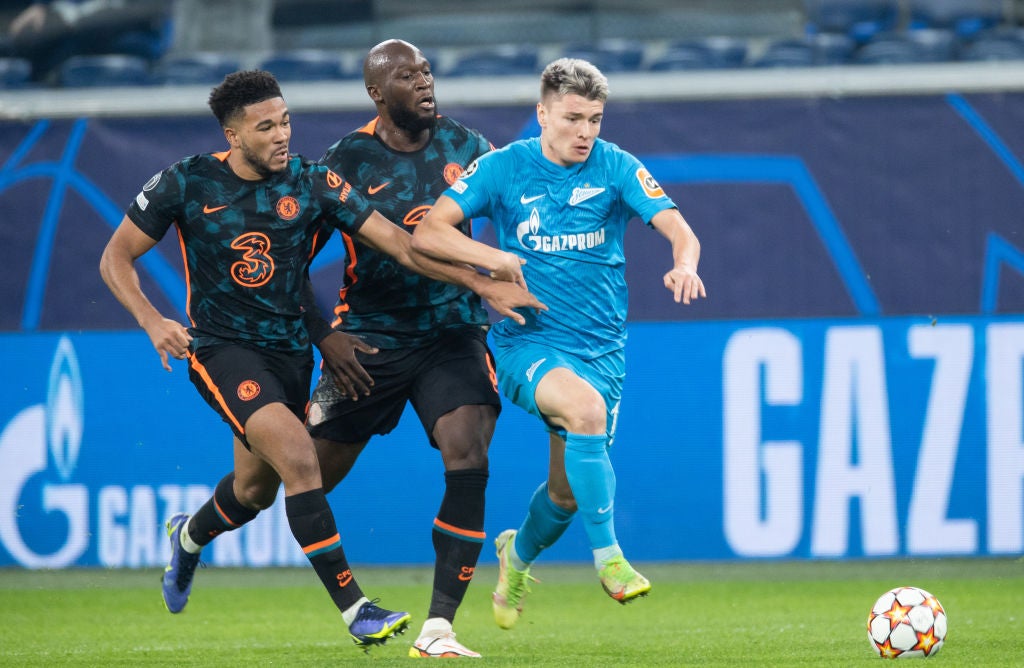
UEFA, European soccer’s governing body, has officially terminated its sponsorship deal with Russian oil giant Gazprom, while ice hockey’s NHL and Euroleague Basketball have suspended commercial agreements in the country.
It was widely expected that UEFA would eventually cut ties with Gazprom after facing increasing pressure last week when the company was advertised during games in its Champions League clubs competition amid Russia’s invasion of Ukraine.
The continental body tasked its lawyers with ending the longstanding relationship – which was due to run for another two years – and made an official announcement yesterday (February 28) evening.
UEFA’s brief statement read: “UEFA has decided to end its partnership with Gazprom across all competitions. The decision is effective immediately and covers all existing agreements including the UEFA Champions League, UEFA national team competitions, and UEFA Euro 2024.
Gazprom’s deal with UEFA was worth €40 million ($44.8 million) per season and had been a Champions League sponsor since 2012.
In May 2021, the energy giant extended its Champions League sponsorship until 2024 and further enhanced its partnership with UEFA to become a partner of two editions of the European Championships (Euro 2020 and Euro 2024).
UEFA’s decision followed German club Schalke’s cancellation of their front-of-shirt sponsorship agreement with Gazprom yesterday.
Meanwhile, the NHL has chosen to suspend its relationships with sponsors in Russia “effective immediately” and has paused its Russian language social and digital media sites.
The top ice hockey league’s most notable commercial agreement in Russia is a three-year betting partnership with Stavok that was signed at the start of this season and is due to run until 2024.
In addition, the NHL is “discontinuing any consideration of Russia as a location for any future competitions involving the NHL.”
The league’s move comes after the International Ice Hockey Federation (IIHF) banned both Russia and Belarus from all tournaments "until further notice", following in the footsteps of the International Olympic Committee and FIFA and UEFA in doing so.
Elsewhere, Euroleague Basketball, organizer of the sport’s elite European clubs competition, has frozen its marketing partnership with VTB, the Russian bank “until further notice”.
In a statement, Euroleague stated: “This decision will cease, at least temporarily, the presence of the VTB Bank brand in the organization's competitions – the EuroLeague and the EuroCup – and its association with EuroLeague and EuroCup clubs, players and coaches.”
Additionally, following a meeting yesterday, the Euroleague executive board announced the suspension of all EuroLeague and EuroCup games in which Russian federation teams are due to participate.
The top-tier EuroLeague features three Russian teams – CSKA Moscow, BC Unics, and Zenit Saint Petersburg – while the second-tier EuroCup features one in Lokomotiv Kuban.
Following the decisions by the respective federations and leagues, pressure could now be placed on major brands to cut ties with Russian sporting bodies.
Conrad Wiacek, head of sport analysis at GlobalData, said: “Nike, Adidas, and Puma will find it hard to resist pressure to sever ties with Russian sporting organizations for whom they supply kits in light of the IOC’s recommendation to effectively sever all ties with Russia and Belarus.
“With Russia increasingly isolated on the world’s sporting stage, the IOC has taken the unprecedented step to recommend that international sports federations and sports event organizers not invite or allow the participation of Russian and Belarusian athletes and officials in international competitions. This immediately puts over $30 million of kit supply deals in jeopardy, with Adidas and Nike particularly exposed.
“Nike’s deals with Zenit St Petersburg and Spartak Moscow, worth an estimated $8.5 million and Adidas’ $10 million deal with the Russian Football Federation to supply the teams with kit are the largest likely casualties, but according to the GlobaData Sport Annual European Soccer Kit Supplier report, six sporting goods manufacturers have committed close to $30 millon to the Russian market.
“In addition to the loss of top tier sponsorships like Gazprom’s deal with UEFA and Schalke, the financial repercussions for Russian sport is likely to be felt long after this crisis has abated.”
In other developments, the FIA, motorsport’s governing body, has called an extraordinary meeting for today.
Mohammed Ben Sulayem, the newly elected president of the FIA, made the announcement on Twitter and said the meeting has been arranged to “discuss matters relating to the ongoing crisis in Ukraine”.
Formula 1 (F1), the prestigious motor racing series, has already taken the step to cancel its Russian Grand Prix in Sochi for the upcoming season.
The outcome of the FIA meeting could potentially have consequences for the Haas F1 team which has a title sponsorship deal with Uralkali, a major Russian potash fertilizer producer and exporter.
At the team’s pre-season testing in Barcelona last week, Haas dropped the Uralkali livery that had adorned it last season, with its two drivers – one of them being Russian Nikita Mazepin, whose father reportedly has close ties to Russian President Vladimir Putin – testing plain white cars instead.
In further news, Alisher Usmanov, the Russian billionaire who has commercial ties to English Premier League soccer club Everton, has had his assets frozen by the European Union (EU).
Restrictions include a "prohibition from making funds available" and an EU travel ban as part of further sanctions carried out in response to Russia’s invasion of Ukraine.
Usmanov’s USM Holdings company sponsors Everton's training ground, while the Russian also has an exclusive naming rights option on the Merseyside-based club’s new stadium that is due to open in 2024.
Everton owner Farhad Moshiri is the chairman of USM Holdings. It is presently unclear if the move will have any effect on the club.
After the EU froze his assets, Usmanov today announced he is "suspending" his duties as president of the International Fencing Federation "effective immediately until justice is restored".



